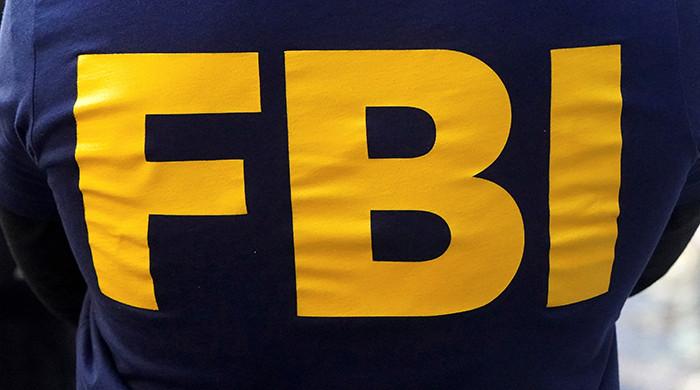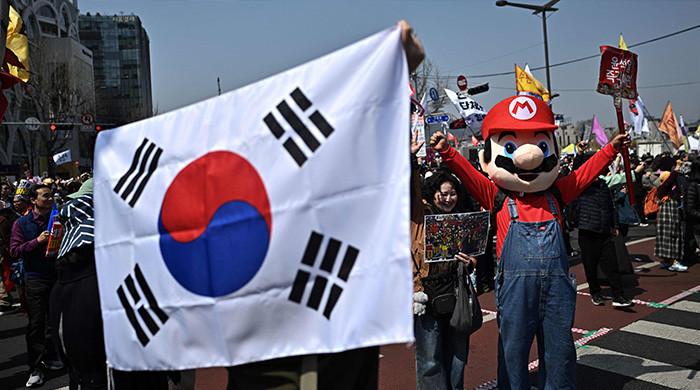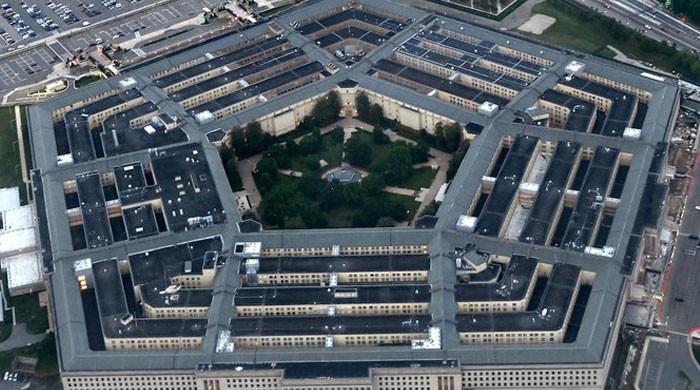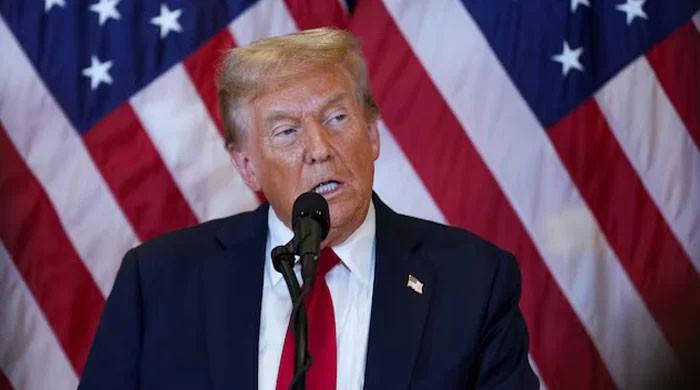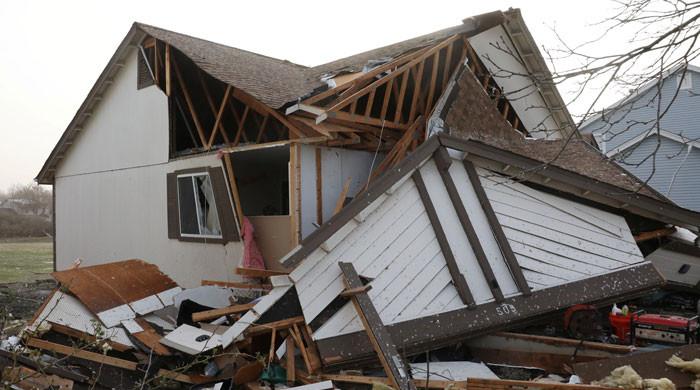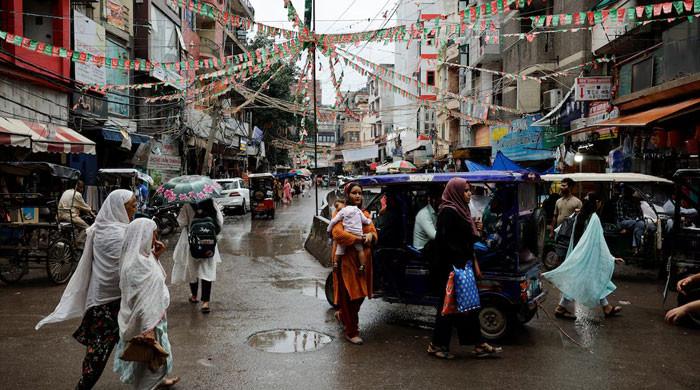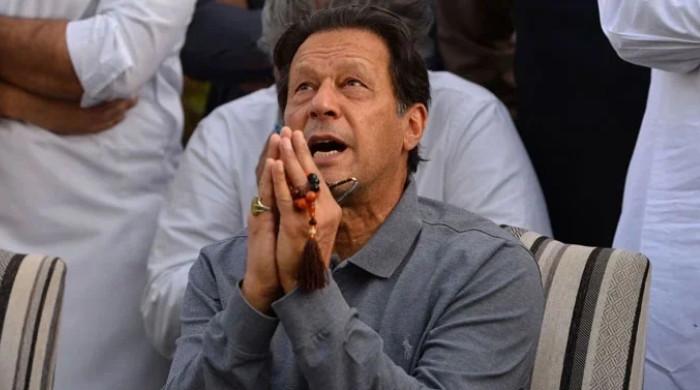South Korea's President Yoon ousted by Constitutional Court
President Yoon Suk Yeol has been ousted for violating constitutional powers, sparking political crisis
April 04, 2025
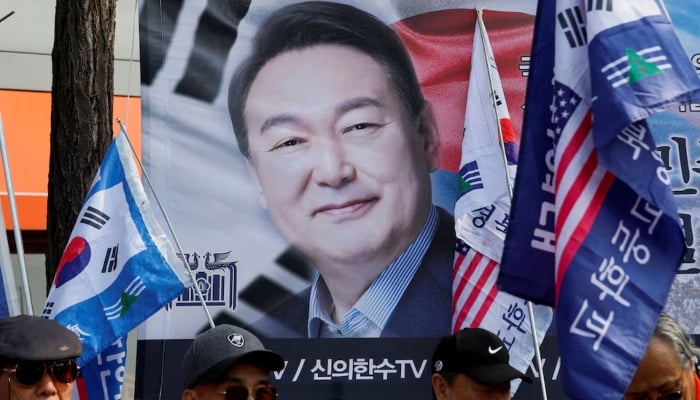
- PM Han Duck-soo to serve as acting president until election.
- Court rejects argument that martial law intended as warning.
- Yoon also faces criminal trial for insurrection charges.
SEOUL: South Korean President Yoon Suk Yeol was ousted by the Constitutional Court on Friday, which upheld parliament's impeachment motion over his imposition of martial law last year that sparked the country's worst political crisis in decades.
The ruling caps months of political turmoil that have overshadowed efforts to deal with the new administration of US President Donald Trump at a time of slowing growth in Asia's fourth-largest economy.
With Yoon's ouster, a presidential election is required to take place within 60 days, according to the country's constitution.
Prime Minister Han Duck-soo will continue to serve as acting president until the new president is inaugurated.
"The Constitutional Court’s unanimous ruling has removed a major source of uncertainty," Professor Leif-Eric Easley of Ewha University in Seoul. "And not a moment too soon, given how the next administration in Seoul must navigate North Korea’s military threats, China’s diplomatic pressure, and Trump’s trade tariffs."
Acting Chief Justice Moon Hyung-bae said Yoon violated his duty as president with his December 3 martial law declaration, acting beyond the powers given to him under the constitution and describing his actions as "a serious challenge to democracy".
"(Yoon) committed a grave betrayal of the people's trust who are the sovereign members of the democratic republic," Moon said, adding that Yoon's declaration of martial law created chaos in all areas of society, the economy and foreign policy.
Thousands of people at a rally calling for Yoon's ouster, including hundreds who had camped out overnight, erupted into wild cheers on hearing the ruling, chanting "We won!"
Supporters of Yoon who were gathered near his official residence reacted in anger. One protester was arrested for smashing a police bus window, the Yonhap news agency reported.
The South Korean won was largely unfazed by Friday's ruling, remaining at about 1% higher vs dollar at 1,436.6 per dollar by 0249 GMT. The benchmark KOSPI was down 0.7%, also unchanged from the morning as the expected scenario was for the court to uphold the impeachment bill.
Arguments rejected
The court rejected most of Yoon's argument that he declared martial law to sound the alarm over the main opposition party's abuse of its parliamentary majority, saying there were legally justified avenues to address disagreements.
The martial law decree lacked justification and was also procedurally defective, Moon said. Mobilising the military against parliament to disrupt its functions was a grave violation of Yoon's constitutional duty to safeguard the independence of the three branches of government, he added.
Yoon's ruling People Power Party's interim leader Kwon Young-se apologised to the people saying the party humbly accepted the court's ruling and pledged to work with the acting president to stabilise the country.
Acting President Han Duck-soo, speaking after the ruling, said he would do all he could to ensure an orderly and peaceful presidential election.
Finance Minister Choi Sang-mok is expected to convene an emergency meeting with the Bank of Korea governor and financial regulators.
The 64-year-old Yoon faces a criminal trial on insurrection charges related to the martial law declaration. The embattled leader became the first sitting South Korean president to be arrested on January 15 but was released in March after a court cancelled his arrest warrant.
The crisis was triggered by Yoon's declaration of martial law, which he has said was needed to root out "anti-state" elements and the opposition Democratic Party's alleged abuse of its parliamentary majority that he said was destroying the country.
Yoon lifted the decree six hours later after parliamentary staffers used barricades and fire extinguishers to ward off special operations soldiers who arrived by helicopter and broke windows as they sought to enter parliament, where lawmakers voted to reject martial law. Yoon has said he never intended to fully impose emergency military rule and tried to downplay the fallout, saying nobody was hurt.




